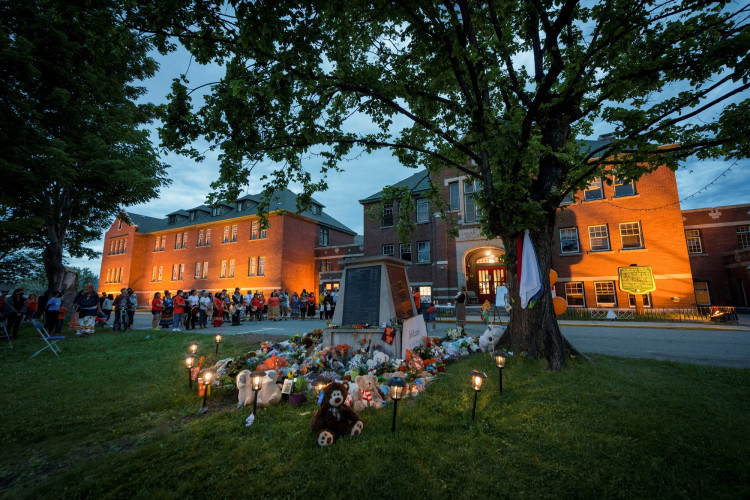An Indigenous Canadian nation said it had discovered 751 unmarked graves at the site of a former residential school in Saskatchewan. According to the Cowessess First Nation, the discovery was "the most significantly significant to date in Canada."
"This is not a mass gravesite. These are unmarked graves," Cowessess Chief Cadmus Delorme said.
From 1899 to 1997, the Roman Catholic Church operated the Marieval Indian Residential School in the area where Cowessess is now located in southeastern Saskatchewan. It is unclear whether all of the remains are connected to the school.
During the 19th and 20th centuries, it was one of more than 130 obligatory boarding schools funded by the Canadian government and managed by religious institutions with the goal of assimilating Indigenous youth.
An estimated 6,000 children perished while attending these schools, owing mostly to the deplorable health conditions on the interior. Students were frequently housed in buildings that were poorly built, badly heated and unhygienic.
In May, the remains of 215 children were discovered buried at another Canadian boarding school, as the country grapples with its terrible history involving Indigenous people.
Officials said last month that children were buried on the school grounds of the Kamloops Indian Residential School in British Columbia, Canada.
Canada is bracing for more unmarked mass burial discoveries in the coming months, as dozens of Indigenous communities are anticipated to dedicate funds and technical assistance to investigate former schools.
Prime Minister Justin Trudeau said the findings at both former boarding schools "reaffirm the truth" what families, survivors and Indigenous communities "have long known," and the government will continue to provide funding and resources to bring "these terrible wrongs to light."
"They are a shameful reminder of the systemic racism, discrimination, and injustice that Indigenous peoples have faced - and continue to face - in this country," Trudeau said in a statement.
"And together, we must acknowledge this truth, learn from our past, and walk the shared path of reconciliation, so we can build a better future."






